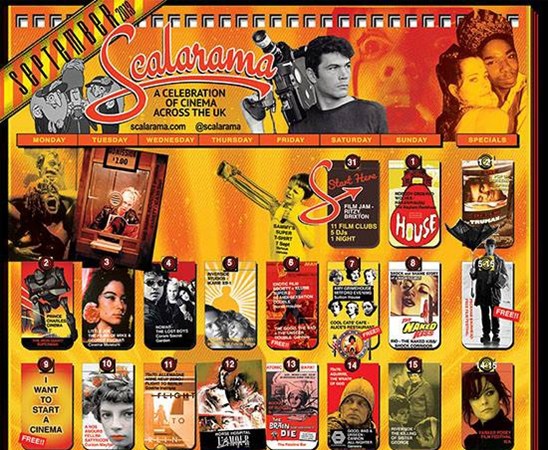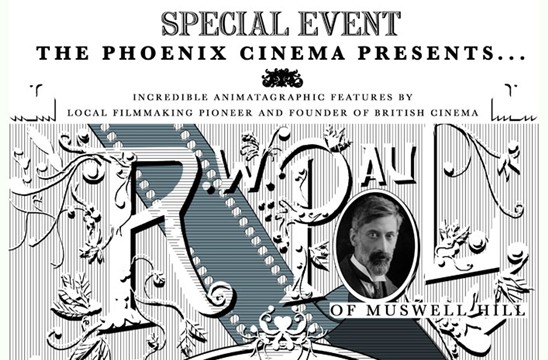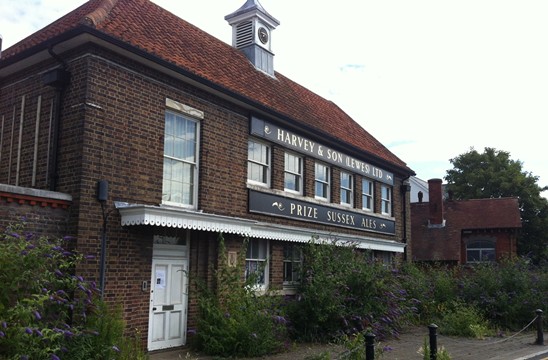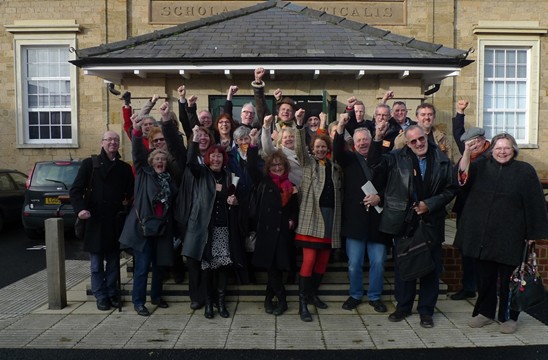Cultural Cinema Exhibition is the Independent Cinema Office’s flagship course. Having run for over fifteen years (pre-dating even the existence of the ICO), the course has been an important rite of passage for people across the film industry, moving forward in their careers in programming, distribution, exhibition, film marketing and education, among many other avenues. With applications for this year’s course closing on Monday, we wanted to take a moment to hear from past alumni of the course, where they are now and what they learned from the course.

Will Massa – British Council
When I finished my masters in World Cinema at Leeds University (2005), my lack of professional understanding meant I was probably overconfident about my ability to break into the film exhibition world. I was armed with some academic training, a bit of writing on film and a huge amount of cinema going, but I had little to no formal experience. The Cultural Cinema Exhibition course offered the chance to get an in-depth understanding of how programming actually worked.
During the course we were tasked with proposing a programme for a weekender at an imaginary venue. Drawing on my passions, I put together a proposal for a mini-festival of unsung gems of Latin American cinema. It wasn’t bad, but it was no way near as good as another proposal called ‘You Haven’t Seen…!?’ which played cleverly on a certain demographic’s anxiety around having a patchy knowledge of the classics.
We also work-shopped the release of the foreign language indie/arthouse title called Sophie Scholl and it was a real eye-opener to see how much effort and creative intelligence goes into positioning a niche title in a crowded market. The biggest takeaway for me on the course was thinking about how to be passionate about films you believe in, while tempering that with realities on the ground and considering how best to engage audiences with smart curation. The course helped me realise that its critical to have a really well-formed idea of who the audience of a given film might be, and to neither patronise nor alienate them.
As I have progressed with my career, there are many instances where I have drawn on things I learned on the course particularly the importance of striking a balance between pleasing your audience and offering something fresh,challenging or unexpected. At the British Council we run film programmes allover the world in a tremendous variety of cultural contexts, all of which pose interesting issues for the programmer. So striking that balance is something we take seriously, especially when it comes to sharing films that have something to say about issues like sexual identity or freedom of expression. On a day-to-day basis we pull together programmes designed to showcase the best of British cinema. This includes short film work, archive material, artists moving image, documentary, fiction and everything in-between. The course was a fantastic introduction to thinking seriously about the relationship between programmer and audience, the conversation that can happen through curation, and the practical realities of getting bums on seats.
Will Massa is the Senior Film Programme Manager at the British Council,having previously worked as head of development on Collabor8te, at Vision+Media, Screen Yorkshire and Reel Solutions, a programming consultancy. He attended the Cultural Cinema Exhibition course in 2006.

Mike Tait – Dundee Contemporary Arts and Discovery Film Festival
When I first attended Cultural Cinema Exhibition, I had just finished my masters in film and TV. I knew I wanted to work in film in the long term, but I had completed my masters part-time while working in international development. I didn’t have any clear route about how I could start working in the film industry or even what role might be right for me (though I had a lot of cinema-going under my belt).
In 2000, Cultural Cinema Exhibition gave me a clear sense about the kind of job I wanted to move towards and how to aim for it. I was always really keen to continue to work with young people, and the project I worked on during the course was to create a venue-based screening programme that would draw in a schools audience. This approach to exhibition looking for the links to education, in all its many forms remains a cornerstone of my current role.
I moved to Newcastle and started working as an usher at Tyneside Cinema. They had a strong education department there and I built up my skills by taking a pilot NVQ in cultural venue operations, and then revisted Cultural Cinema Exhibition.This really helped crystalise the directions we could head in for our education team and gave us ideas about new avenues to try. There are things I learned in that environment that I don’t think I would have understood otherwise. Kathy Loizou from the Showroom showed me how important it is to keep partners like teachers on side in an education programme. Let them eat cake, was her motto and a slice or three of Dundee cake is never far away when I’m trying to engage new partners.
The people you get to meet on the course prove to be very helpful. At most venues, you can be quite isolated and the risks of trying new things can be high given the restricted budgets. Having met a big group of contemporaries,you know you always have people you can quickly ask about opportunities or ideas; they can be a sounding board and a support group. You might not use them day to day, but they can be invaluable.
Mike Tait is Cinema Youth Development Officer at Dundee Contemporary Arts and is festival producer for Discovery Film Festival, Scotland’s International Film Festival for Young Audiences. He attended Cultural Cinema Exhibition twice, in 2000 and 2010.

Michael Pierce – Cinema Nation
At the time, I was working as apart-time projectionist at the Phoenix Cinema in East Finchley. I really enjoyed the job, working with 35mm projection and supporting the tech for special events, and alongside that work, I’d also started volunteering at film festival’s in London to build work experience. However, I was really keen to organise my own projects, working with audiences directly and getting out of the projection room! I also was considering cinema exhibition as my career, so I wanted to get more awareness of the field and connect with like-minded people.
As I wasn’t a senior member of staff at the Phoenix, I wasn’t sure I would get on the course. It was also certainly the biggest investment Id made in my career since university. But I knew from people I met at film festivals who’d done it in previous years that it made a big difference to them, helping them attain jobs at the London Film Festival and Curzon Cinemas. So when I received the letter saying that my application to the course was successful, I felt my career choice had been validated and it gave me a lot of encouragement to take pride in what I was doing.
The course itself was fantastic and packed full of great information. I met lots of interesting people, like-minded in their decision to either get into film programming, or improve their own festivals or cinemas. I seized the opportunity and tended to ask a lot of questions of the speakers and I still have my pad full of notes! It really opened my mind to the range of cinema exhibition out there, and also focused me on audience engagement. It certainly also boosted my confidence as I made new contacts, as well as life-long friends, which was an unexpected but important consequence of the course.

After the course, I had a much stronger sense of my own abilities and was keen to put them into practice. I started planning an event at the Phoenix celebrating silent filmmaking pioneer R.W. Paul, whose studios were in nearby Muswell Hill.It tied into a BFI DVD release of his work, and the event had Professor Ian Christie lecture in between Paul’s short films, accompanied by word-class silent pianist Stephen Horne, who also happened to be local to the cinema. The course helped me negotiate rights and formats with the BFI, create a budget,design custom posters and strategise local promotions, with over 100 people attending on the day.
Looking for full-time employment, the course also helped me gain an entry position at Curzon Cinemas as an events assistant. Two of the people that interviewed me had also done the course in previous years, and so could trust that I had a good awareness of distribution and programming. It certainly helped my CV standout from other film and academic qualifications. I spent three and a half years in the events and marketing teams, and doing the course definitely influenced me and a colleague to launch and manage our own popular strand of late-night cult movie screenings at Curzon Soho.
I can still see examples of things I learned during the course in my work today,especially in Scalarama, which we hope encourages others to start film events themselves. It also made me aware of activity outside of the South East as course attendees came from all over the country. Outreach and audience development was part of the courses philosophy and so its great to now be able to collaborate with several partners around the UK, including some of my fellow course mates. There are some lessons that the course taught me that I think the wider industry could benefit from, especially on diversity in programming (and programmers), but as more people start their own DIY film initiatives, I see signs that there is a great cultural shift in cinema at the moment. Cinema programming is about advocacy and its great that the course came at the right time for me to be able to advocate for the cinema I want to see. I would really recommend anyone who takes their careers seriously, but also wants to have fun!
Michael Pierce is the co-director of Cinema Nation, a London-based research and development agency that explores, supports, champions and encourages all forms of film exhibition.Cinema Nation encompasses many projects including a monthly podcast, but is well-known for producing Scalarama, an inclusive film season celebrating cinema across the UK every September. Michael attended the Cultural Cinema Exhibition course in 2006 and will be teaching on the course in 2015.
Lewes Depot, soon to become a mixed arts venue,was reclaimed by the work of programmer Carmen Slijpen and her team.
Carmen Slijpen – Lewes Depot
I attended the Cultural Cinema Exhibition course in 2011 when I was working on a voluntary basis for the Lewes Film Club as a programmer, projectionist and committee member. I had setup the Lewes Junior Film Club in 2009 for which I ran big immersive events created around themes of specialist films. The Cultural Cinema Exhibition course provided a wide overview of all things involved in the exhibition sector. I come from a self-made background (I started my career as a projectionist) as opposed to a film school background where people build up a network through education so the networking opportunity was really valuable as well. The cherry on the pudding was that I walked away with lots of new ideas, some of which I was able to implement immediately and others that I am still working on…
I became a paid film programmer for a cinema run by the Lewes Town Council. Immediately after the CCE course I decided to try to develop a purpose-build cinema in Lewes and set out to achieve that. I found a funder, and we agreed to set up a charity. We gained planning permission for a 3-screen cinema/restaurant and education facilities in December 2014 and are looking to open our doors to the public in summer 2016.
The Lewes Depot teamcelebrate being granted planning permission for the site.
The course has had a very positive effect on my career, it gave me a much better understanding of the position that the exhibition sector has within the industry and its relationship with distributors, publishers, venues etc. I also felt empowered in terms of a determining a career path. I can honestly say that I wouldn’t be doing what I am doing now without having attended this training course!
Carmen Slijpen is the Creative Director and Programmer at Lewes Depot. She attended the Cultural Cinema Exhibition course in 2011.



